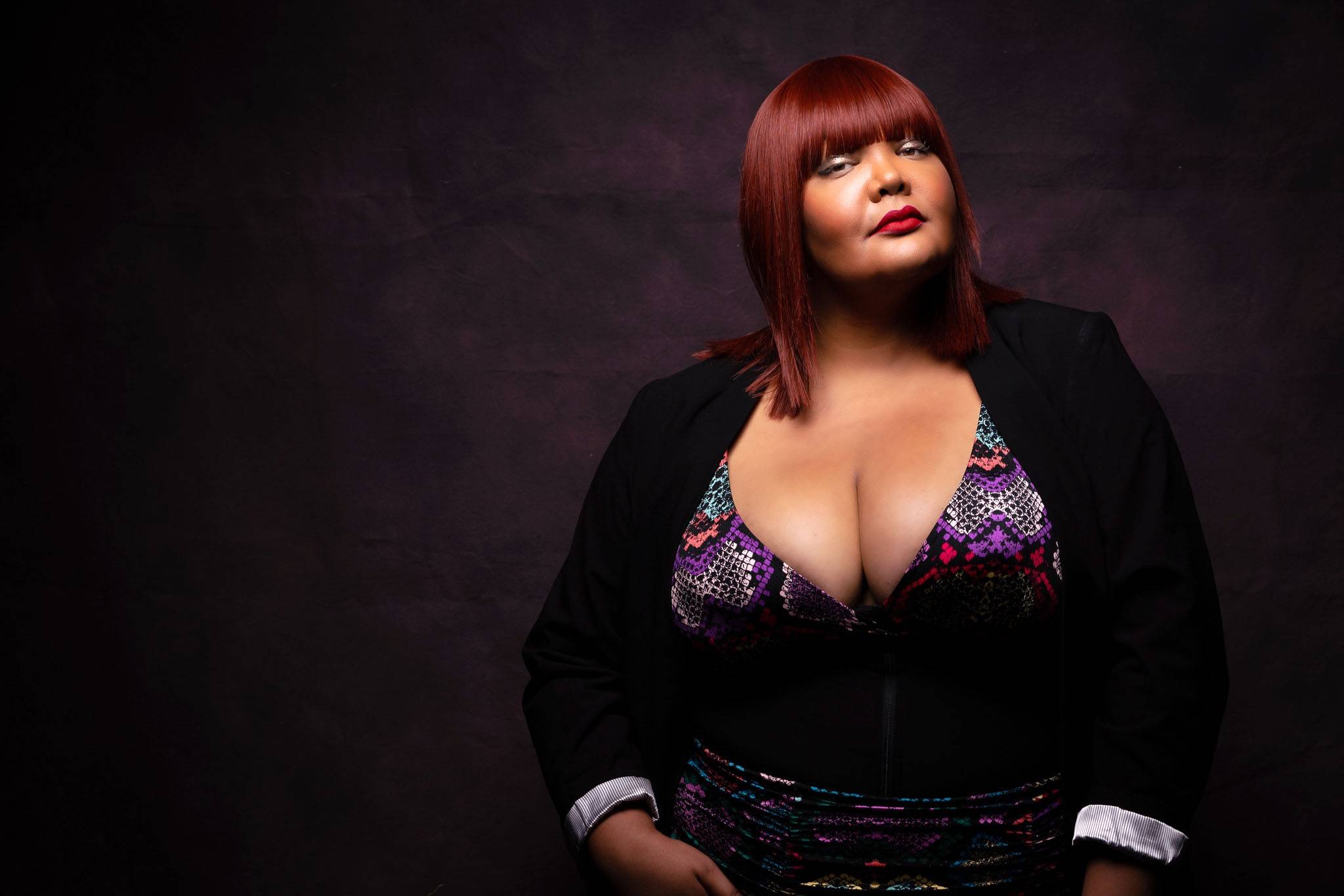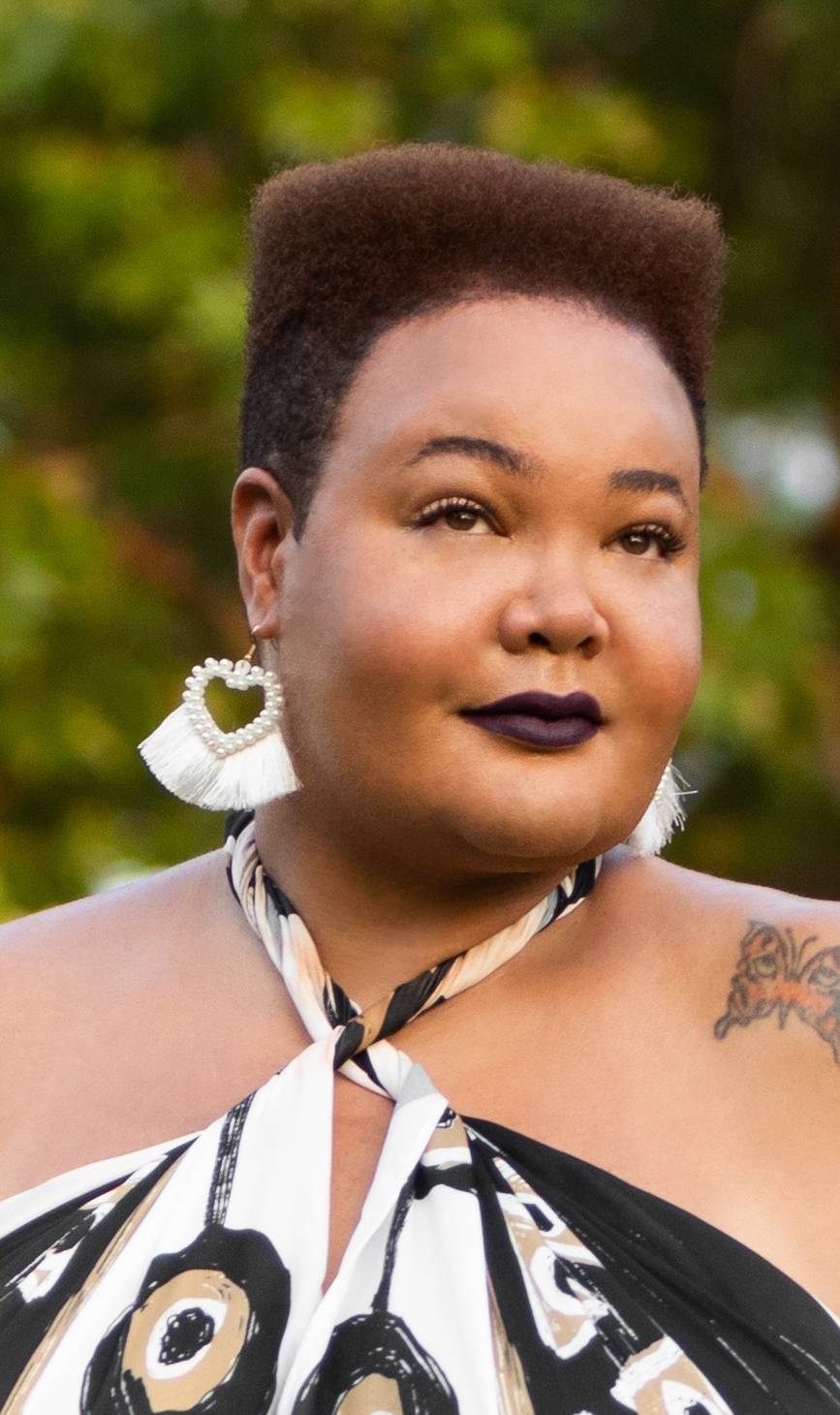The Black Trans Experience: Insights from Diamond Stylz
Interviews
For Black History Month, twenty-year veteran activist and advocate for Black trans women Diamond Stylz shares her insights into the Black trans experience.
Listen to Diamond’s interview with myGwork here below.
Protecting Black trans women isn’t a slogan for Diamond Stylz, it’s her life’s work and passion. As a high schooler, she successfully sued Indianapolis Public Schools for the right to wear a gown to prom rather than a tuxedo and then went on to become the first openly trans woman to attend Jackson State University, an HBCU in Mississippi. Her experiences in college sadly included being the target of the kind of bigoted violence that continues to kill Black trans women in America at higher rates than other transgender and gender nonconforming people. In response, Diamond doubled down on her activism and became the visible advocate for Black trans women that she is today. From producing the weekly podcast Marsha’s Plate, where she and her co-hosts help to unpack Black trans people’s experiences, to helming Black Transwomen Inc, a national non-profit that supports Black trans women in need. The twenty-year veteran activist and advocate for Black trans women, shares her insights into the Black trans experience.

Hi Diamond, can you tell us why you created Marsha's Plate?
Diamond: Martia’s Plate started back in 2017. Last October was our fourth anniversary. In 2016, during the election of Donald Trump, I only saw White trans women in conversations about trans people. It was the first time we were having a national political discussion about trans people, but there was a blind spot that no one was taking into account. So I created my own platform, to be able to share trans experiences and stories and opinions from a Black woman’s perspective.
Can you tell us about a bit about your transitioning journey, and how your experience led you to become a trans activist?
Diamond: I'm 40 now but I actually transitioned when I was 13, coming out in 1994/95. Back then the political and cultural conversation around trans people was very different. The only trans representation I found was on the Jerry Springer show. We certainly didn't have the kind of discourse and beautiful trans representation that we now have in media. As a high schooler, I successfully sued Indianapolis Public Schools for the right to wear a gown to my prom rather than a tuxedo. Then I went on to become the first openly trans woman to attend Jackson State University, an HBCU in Mississippi. So, it was kind of ground-breaking to do the things that I was doing, although it wasn’t intentional back then. I was just trying to live my life and be the woman that I wanted to be.
But at college I suffered and experienced harm at the hands of other students for being trans. For example, students would try to throw boiling hot water on me. Being put in a boy's dorm didn’t help. It was the first time that I literally had no allies. Even the queer people were scared to be around me because I had such a high profile. I wasn't a celebrity, but I was the first trans person to even go to this school and just attracted too much attention. So I didn't even have my normal cisgender women, gay and lesbian allies, and it was a tough time for me. But I got through it and survived. Slowly the culture shifted in that school.
Today that school has so many queer and trans people, that even the professors still talk about me, saying that I laid the foundation for other trans students. Having gone through the fire, I'm literally now seeing the fruits of my labour. When I go back to the school, and hear people tell me that although they were scared to come out, I was giving them the hope and courage to come out of the closet.
Diamond: So I started to be more intentional and used social media as a tool to share Black trans experiences and archiving trans stories and initiatives. I've been very intentional about it for the past 12 years, creating space for trans people both politically and socially, helping to uplift their social and economic status.
What are some of the biggest challenges that trans people of colour and black trans women are facing right now?
Diamond: Black trans women undoubtedly suffer more than other trans women of colour based on the numbers and the research that’s at our fingertips. If you look at the pictures of trans women who have been murdered just in the United States, it’s dominated by Black trans women, particularly dark skinned, Black trans women. We need to do more to reduce the barriers for trans women and help to diminish the violence and discrimination against them so they too can flourish just like everyone else. That means providing safe public spaces, as well as equal access to health care, housing and secure jobs.
Do you think US governments and businesses are doing enough to protect the trans community and keep them safe?
Diamond: No they're not doing enough. They can do so much more to put us in a position of success. When we think about the ramifications of a Trump presidency, one of which was not being included in the census. This is important because that is how they determine who gets funding. So we want the government to put us on the census, because if we know how many trans people are in the country, then this group will be able to access help and government support.
We also need better policies to protect our new gender identity, not just in the workforce, but housing and health care, with procedures and policies to stamp out discrimination and harassment that the trans community still faces. The healthcare industry also needs to ensure better education and compliance in terms of providing information about trans people for both young and older people considering a transition. The government must also ease up on bureaucracy to help make it easier for us to change our name, gender markers, etc that will help us to live a more normal life; because it’s those things that can lead to trans people being discriminated against when it comes to restrooms and locker rooms etc. Organizations also need to remove any policies that allow discriminatory healthcare practices and ensure that all medical needs are covered for anyone considering a transition (both physical and mental support). So, although we're moving in the right, there's a lot more work to do in terms of policies and education.

What kind of influence has the Black Lives Matter movement had on the Black trans community?
Diamond: It has had powerful influence right from the beginning. One of the pillars of the Black Lives Matter movement was to include trans people when they talked about Black lives to ensure that the conversation was not just limited to Black men killed by police. So, when we're talking about Black Lives mattering, they are talking about all Black lives. The very beginnings of the movement back in 2015 included a black trans person in the leadership team, which gave us a voice in discussions. It empowered us and it definitely had an impact on my life and our community.
What's your vision for the future for Black trans women and trans women of color?
Diamond: I want the number of trans deaths to be reduced. I also really want our contributions to our culture, joy, and the amazing work that we're doing put out there. There are so many trans people doing great work and involved in innovative projects across all sectors. I want the public to see how powerful and resilient we are by showcasing that work, joy and our creativity.
What advice do you have to someone who is considering or going through a transition that would be useful to them?
Diamond: Community is so important. Build a community of people who love you and affirm you, and are going to support you during the dark times. That means surrounding yourself with people who love you and want you to be happy and understand that transition makes you happy. Sometimes that includes people who are related to you, and sometimes it doesn't. Sometimes it's your chosen family that are the ones that will be your rock, and not necessarily your blood family. But sometimes your blood people will also be amazing, like my mom was.
Secondly don't rush it. Understand that you don't have to look like anybody else. You don't have to fit into any kind specific beauty standards. You can be whoever you want to be. So, take life by the horns and create your own lane. Be steadfast and stable in the idea that you deserve to be here. You deserve love, peace of mind, and all the great things that all humans do.
Find out more about Diamond's work here.

